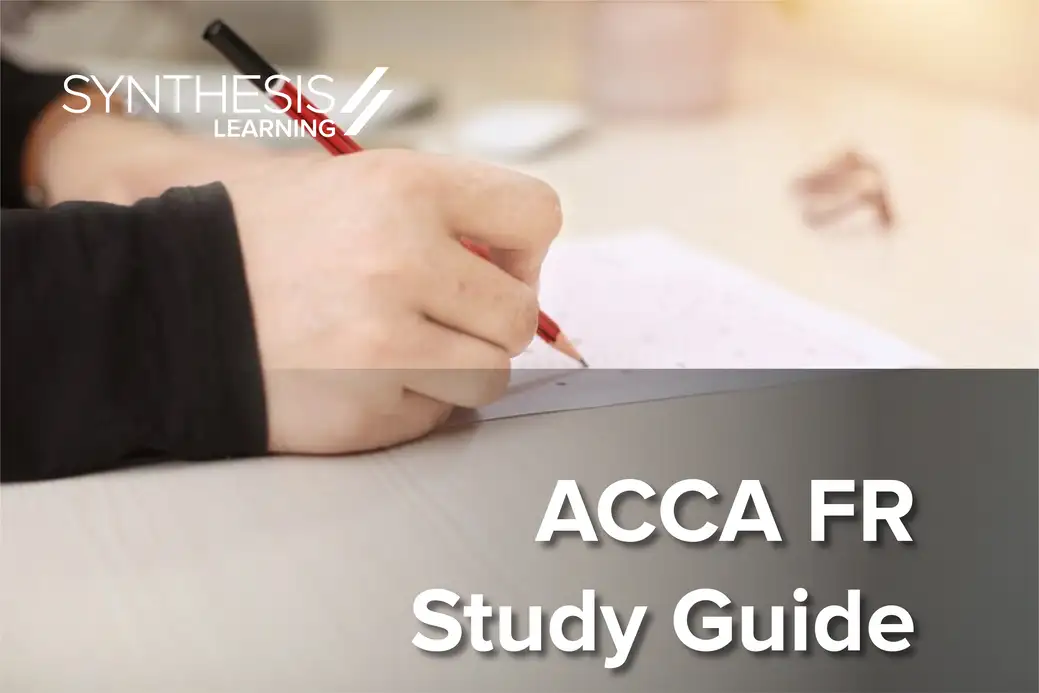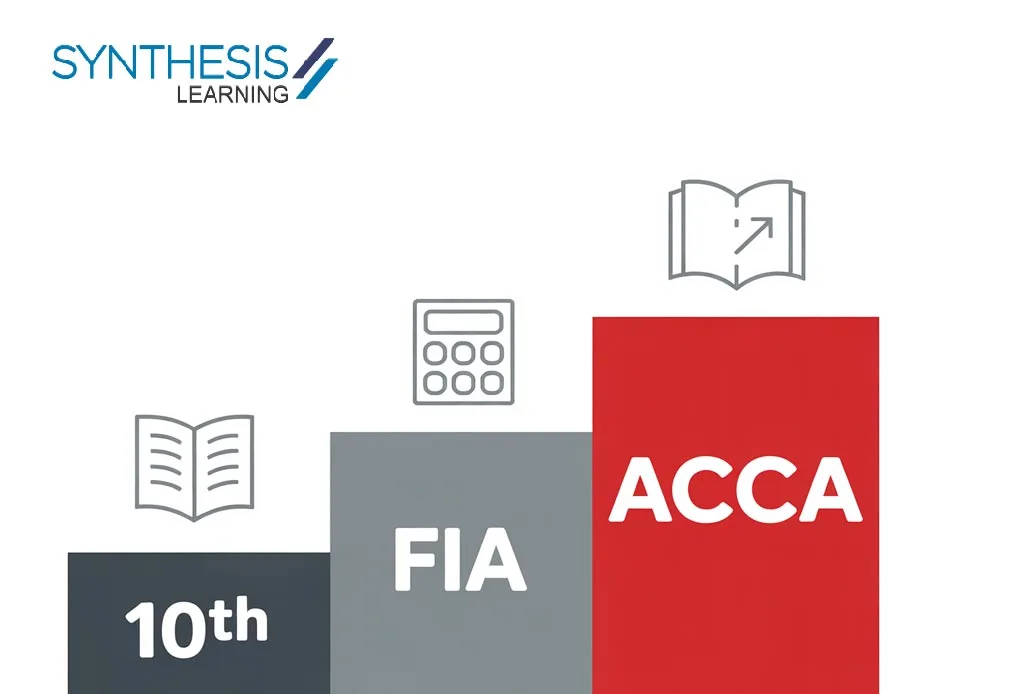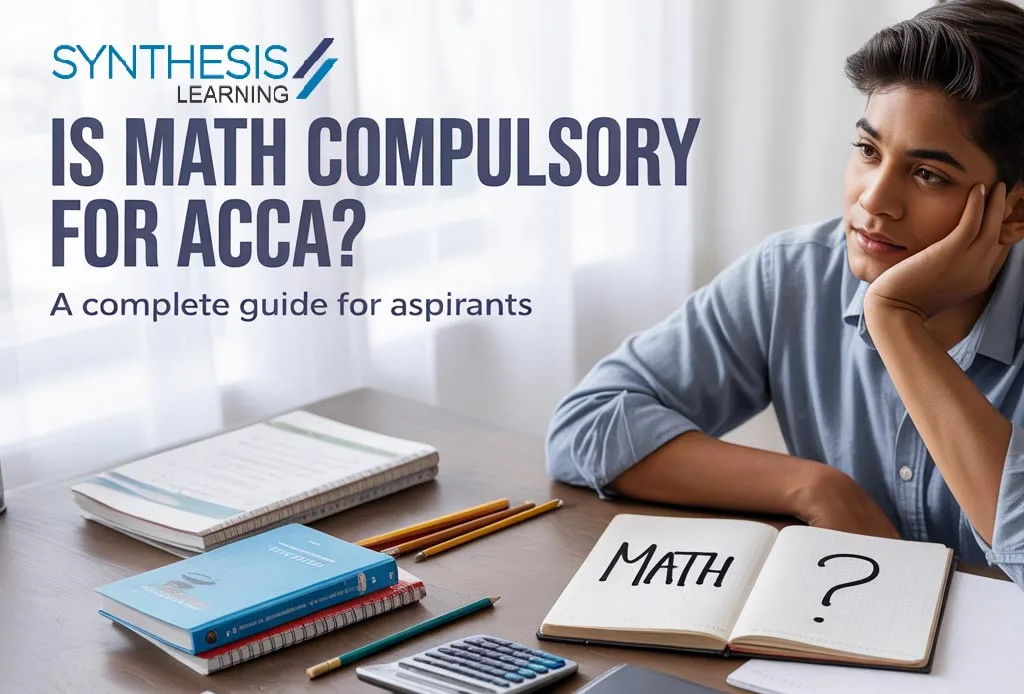The ACCA Financial Reporting (FR) paper is a core component of the ACCA qualification and plays a pivotal role in shaping your professional accounting competence. It is designed to develop a strong foundation in understanding, applying, and evaluating accounting standards, alongside the conceptual and regulatory frameworks that govern financial reporting. Through this paper, candidates gain the ability to prepare high-quality financial statements that meet international standards and professional expectations.
This comprehensive guide provides a clear overview of the ACCA Financial Reporting syllabus, explains the exam structure in detail, and outlines effective preparation strategies. It also highlights essential study resources to support your exam readiness and improve your chances of passing the ACCA FR paper with confidence.
What Is the Subject of FR in ACCA?
The ACCA FR subject builds directly on the knowledge acquired in the Applied Knowledge level. It focuses on the preparation, presentation, and interpretation of financial statements for both single entities and group structures. Candidates learn to apply International Financial Reporting Standards (IFRS), assess financial information critically, and analyse the financial performance and position of organisations.
Beyond technical skills, the paper strengthens your professional judgement and analytical ability. This makes ACCA FR a crucial paper for anyone aspiring to become a competent and globally recognised accounting professional.
Understanding the ACCA FR Syllabus and Exam Structure
The ACCA FR syllabus is structured into five key sections, labelled A to E. Each section addresses a specific area of financial reporting, ensuring balanced coverage of both theory and application.
A. The conceptual and regulatory framework for financial reporting
- The need for a conceptual framework and the characteristics of useful information
- Recognition and measurement
- Regulatory framework
- The concepts and principles of groups and consolidated financial statements
B. Accounting for transactions in financial statements
- Tangible non-current assets
- Intangible assets
- Impairment of assets
- Inventories and agriculture
- Financial instruments
- Leasing
- Provisions and events after the reporting period
- Taxation
- Reporting financial performance
- Revenue
- Government grants
- Foreign currency transactions
C. Analysing and interpreting the financial statements of single entities and groups
- Limitations of financial statements
- Calculation and interpretation of accounting ratios and trends to address users’ and stakeholders’ needs
- Limitations of interpretation techniques
- Not-for-profit and public sector entities
D. Preparation of financial statements
- Preparation of single entity financial statements
- Preparation of consolidated financial statements for a simple group
E Employability and technology skills
- Use computer technology to efficiently access and manipulate relevant information
- Work on relevant response options, using available functions and technology as would be required in the workplace
- Navigate windows and computer screens to create and amend responses to exam requirements, using the appropriate tools
- Present data and information effectively, using the appropriate tools
ACCA FR Exam Pattern
A clear understanding of the ACCA FR exam pattern is essential for effective preparation. The examination is three hours long and is divided into three distinct sections, each testing different skill sets.
Section | Question Type | Marks | Details |
Section A | 15 Objective Test (OT) Questions | 30 marks (2 marks each) | Covers any area of the syllabus |
Section B | 3 OT Case Studies (5 questions each) | 30 marks (10 marks per case) | Scenario-based cases with five OT questions per case |
Section C | 2 Constructed Response (CR) Questions | 40 marks (20 marks each) | Q1: Interpretation of Financial Statements. Q2: Preparation of Financial Statements (single or group) |
This exam structure assesses not only technical knowledge but also application, interpretation, and time management skills.
How to Prepare for ACCA FR: Study Plan and Materials
A disciplined and well-structured ACCA FR study plan is essential for success. Candidates are advised to allocate approximately 150 to 200 hours of study time, depending on their existing accounting background. This time should be distributed strategically across the syllabus.
Greater emphasis should be placed on Section B (Accounting for Transactions) and Section D (Preparation of Financial Statements), as these areas carry significant weight in the examination and require extensive practice.
Recommended ACCA FR Study Material
Selecting the right ACCA FR study material can significantly influence your exam performance. The following resources are essential for thorough preparation:
Official ACCA Study Text and Practice Kit
These are the primary resources for understanding the syllabus and practising exam-style questions.
Technical Articles on the ACCA Website
These articles help clarify complex accounting standards and frequently tested concepts.
Past Exam Papers and Mock Exams
These are crucial for understanding exam format, improving speed, and refining exam technique.
For candidates seeking structured support, expert coaching providers such as Synthesis Learning offer ACCA online classes with tailored guidance for Indian students.
ACCA FR Notes: A Key Revision Tool
Concise and well-organised ACCA FR notes are invaluable during the final stages of revision. Candidates should prepare or use summaries for each major accounting standard, focusing on core principles and common exam applications.
A sample structure for organising notes on key standards is shown below:
Accounting Standard (IAS/IFRS) | Core Principle | Key Journal Entries / Calculations |
IAS 16 – Property, Plant and Equipment | Cost model vs. Revaluation model | Depreciation, Revaluation surplus |
IFRS 15 – Revenue from Contracts | Five-step revenue recognition model | Identifying performance obligations |
IAS 37 – Provisions | Recognise if a present obligation exists | Provision calculation, Discounting |
Such structured notes make revision efficient and help reinforce technical accuracy.
ACCA FR Passing Rate and What It Means for You
The ACCA FR passing rate has consistently remained in the range of 48% to 51%, as observed in recent sessions between December 2024 and December 2025. This indicates that the paper is moderately challenging but far from unachievable.
A stable pass rate demonstrates that candidates who follow a disciplined study plan, practise regularly, and use the right ACCA FR study material can pass the exam successfully.
Things to Remember While Writing the Exam
After months of consistent preparation and hard work, performing well on exam day is equally important. Keeping the following points in mind will help you stay focused, calm, and efficient throughout the paper.
Time Management
Completing the paper within the allotted time is critical. Effective time management often determines overall performance. Section C can be particularly time-consuming, so aim to complete Sections A and B efficiently to reserve sufficient time for Section C.
Recommended Time Allocation During the Exam
PAPER | FR | TOTAL |
Section A | 15 OTQs × 2.67 minutes | 40 minutes |
Section B | 15 case study OTQs × 2.67 minutes | 40 minutes |
Section C | 2 questions × 45 minutes each | 90 minutes |
Final check | 10 minutes | |
TOTAL | 180 minutes |
Exam-Day Strategy and Mindset
- Stay calm and composed throughout the exam. Stress and panic can affect even straightforward and scoring questions.
- Attempt every question. Do not leave any question unanswered.
- For OTQs, there is always a 25% probability of selecting the correct answer. Make an informed guess and choose the option closest to your understanding.
- For constructed response questions, there is no negative marking. Based on your conceptual clarity, ensure that you attempt every question.
- Be prepared for new or unconventional question formats, especially in areas such as Ratio Analysis. With patience and strong conceptual linking, these questions can be managed effectively.
- Follow the order of the paper strictly. Start with Section A, move to Section B, and attempt Section C at the end.
- Avoid spending excessive time on questions you find difficult. Move ahead and return later if time permits.
- In Section C, clearly show all workings for numerical questions wherever required.
- For theoretical questions, write sufficiently detailed answers. A single clear, relevant, and valid point is typically worth one mark.
A calm approach, disciplined time allocation, and complete attempts across all sections will significantly improve your chances of maximising your score.
Examiner’s Expectations
For every exam sitting, ACCA publishes an Examiner’s Report that offers valuable insight into the marking process. These reports highlight common mistakes made by students, explain why certain answers score poorly, and outline effective techniques for improving exam performance.
Reviewing the Examiner’s Reports is essential to understand exactly what the examiner expects. They show how candidates have struggled with specific questions and, more importantly, how those answers could have been structured or improved to score higher marks. In effect, they allow you to learn from others’ mistakes rather than repeating them yourself.
You can refer to the Examiner’s Reports published by ACCA through the link provided to gain a clearer understanding of expectations and marking standards.
Additional Resources and Career Pathways
Passing ACCA FR is a significant milestone, but it is only one step in your professional journey. Candidates can explore the full ACCA qualification and other courses after 12th commerce to build a strong global finance career.
For Indian students, understanding the ACCA salary in India can provide strong motivation. Starting ACCA after 12th is a strategic decision that opens doors to international career opportunities in accounting and finance.
Conclusion
The ACCA Financial Reporting (FR) exam is challenging but fully achievable with the right approach. Success depends on understanding the financial reporting syllabus ACCA, following a structured ACCA FR study plan, and practising consistently with reliable ACCA FR study material. The ACCA FR exam pattern tests both technical knowledge and application, so focus on core areas such as preparation and interpretation of financial statements. As you progress, factors like acca Salary in India often motivate candidates to stay committed. Use concise ACCA FR notes for effective revision and learn from past exam trends. Although the ACCA FR passing rate may appear demanding, disciplined preparation makes success realistic.
FAQ’s
1. What is the subject of FR in ACCA?
ACCA Financial Reporting (FR) focuses on the preparation, presentation, and interpretation of financial statements. It covers the application of International Financial Reporting Standards (IFRS), accounting for transactions, group accounts, and analysis of financial performance and position.
2. How many hours should I study for ACCA FR?
Most candidates should plan for approximately 150 to 200 study hours for ACCA FR. The exact number depends on your prior accounting knowledge and familiarity with IFRS.
3. What are the sections of the ACCA FR exam?
The ACCA FR exam has three sections: Section A consists of objective test questions, Section B includes objective test case studies, and Section C contains constructed response questions on financial statement preparation and interpretation.
4. What topics are included in the ACCA FR syllabus?
The syllabus covers the conceptual and regulatory framework, accounting for transactions, analysis and interpretation of financial statements, preparation of single and consolidated financial statements, and employability and technology skills.
5. Why are ACCA FR mock exams important?
Mock exams help candidates understand the exam format, improve time management, identify weak areas, and practise applying concepts under exam conditions.
6. How can ACCA FR exam resources improve my preparation?
Using official study texts, practice kits, technical articles, past papers, and examiner reports strengthens conceptual clarity, improves exam technique, and increases confidence for the actual exam.




